MercoPress. South Atlantic News Agency
Tag: UK inflation
-
Thursday, May 19th 2022 - 08:58 UTC
April inflation in UK, highest in 40 years with worsening prospects before it moderates

The United Kingdom's cost of living worsening situation was confirmed by April's inflation rate which soared to a 40-year high of 9% boosted by food and energy prices.
-
Friday, May 3rd 2019 - 09:03 UTC
Bank of England interest rate evolution depend on resolution of the Brexit impasse
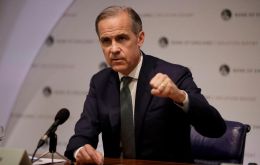
United Kingdom interest rate increases could be “more frequent” than expected if the economy performs as the Bank of England is expecting, governor Mark Carney says. The markets are forecasting just one interest rate increase by 2021.
-
Thursday, February 14th 2019 - 09:13 UTC
UK January inflation at at two-year low and below target

British annual inflation hit a two-year low point in January, undershooting the Bank of England’s 2.0 per cent target on falling oil and other energy costs, official data showed on Wednesday.
-
Thursday, August 16th 2018 - 10:40 UTC
UK inflation in July climbed to 2.5%: a blip or a trend?
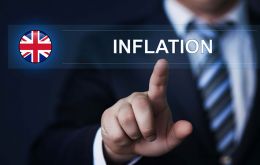
UK inflation climbed in July as had been expected, according to the latest data from the Office of National Statistics, ONS, released on Wednesday. ONS reported that the rate of consumer price inflation, the most-watched measure, increased from 2.4% in June to 2.5% in July, reversing a trend of gradually declining inflation over the course of 2018.
-
Thursday, July 19th 2018 - 08:03 UTC
UK inflation remained unchanged in June at 2.4%
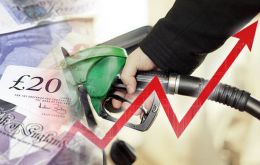
The cost of fuel rose to its highest level in almost four years last month and held up the rate of inflation in the UK, according to the Office for National Statistics.
-
Thursday, June 14th 2018 - 08:54 UTC
UK inflation steady at 2.4% in May, but fuel prices are climbing fast

Inflation in the UK remained at 2.4% in May, according to the Office for National Statistics (ONS), after its fall was halted by a sharp rise in fuel costs. The ONS said that fuel prices increased by the biggest monthly amount since January 2011, rising by 3.8%.
-
Wednesday, March 21st 2018 - 07:37 UTC
UK inflation drops to 2.7% in February, weakest increase since July 2017
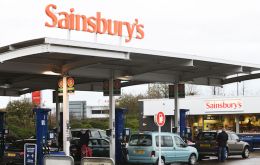
UK inflation was weaker than expected in February easing some of the squeeze on households' spending power but doing little to change bets on a Bank of England rate rise in May. Official data showed consumer prices rose by an annual 2.7% last month, the weakest increase since July of last year and down from a rise of 3.0% in January.
-
Wednesday, February 14th 2018 - 09:10 UTC
UK January inflation remains at 3%; slower food and raw materials prices
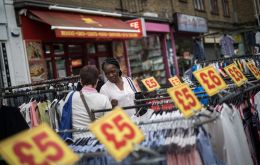
United Kingdom inflation remained at 3% in January, the same level as in December, as reported by the Office for National Statistics, ONS. In November it was the six year high of 3.1% and most economists were expecting a small fall in the CPI to 2.9%.
-
Wednesday, October 18th 2017 - 11:56 UTC
UK inflation climbs to 3% in September, mainly because of the fall in sterling

The UK's key inflation rate hit its highest for more than five years in September, driven up by increases in transport and food prices. The Consumer Prices Index (CPI) climbed to 3%, a level it last reached in April 2012, and up from 2.9% in August. The pick-up in inflation raises the likelihood of an increase in interest rates - currently 0.25% - next month.
-
Friday, May 26th 2017 - 08:02 UTC
UK economy losing momentum as Brexit impact begins to be felt
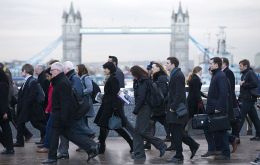
Britain's economy slowed more sharply than first thought in early 2017 as consumers felt the hit from the rise in inflation that followed the Brexit vote and exporters struggled to benefit from the weak pound. Thursday's downbeat official data - which contrasts with signs of acceleration in many other economies - comes two weeks before Britons vote in a national election.
